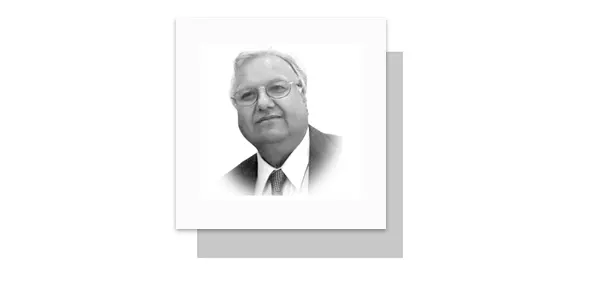A few days ago, Jamaat-e-Islami head, Hafiz Naeem ur Rehman, demanded the resignation of the Chief Election Commissioner and electoral reforms. This demand is legitimate. Electoral reforms are an urgent need of the time. All major political parties, including Mian Muhammad Nawaz Sharif, Asif Ali Zardari and the founder of Tehreek-e-Insaf, agree that electoral reforms are necessary. After recent electoral experiences, there has been an intensification of this demand. Hafiz Na’eem Rahman’s demand is also felt in the same context. The previous Pakistan Tehreek-e-Insaf’s government, had taken steps in this direction, but it did not feel the need to involve all relevant political parties and stakeholders in confidence.
Perhaps the reason for this was that it was inclined to change the entire system of the country like Ayub Khan. It can be said that it was inclined towards the establishment of a single-party system. For this purpose, it wanted to introduce the Electronic Voting System (EVM). According to critics of this party and electoral experts, under this system, obtaining the desired results was possible, but despite strenuous efforts, it failed to materialize. However, even if we overlook this objection, the demand for electoral reforms is fundamentally legitimate, but does it have any relevance to the resignation of the Election Commissioner? This part of the demand purely holds political implications. Reforms must be made by Parliament; this task can be done even without his resignation. However, it is necessary that for any kind of reforms, there must be political consensus. This cannot be done without negotiations. Is Jamaat-e-Islami willing to negotiate with the government on this matter? It doesn’t seem likely because the party’s political stance, like the PTI, is rigid.
What will be the outcome of political tension and whether electoral reforms will take place or not, is a separate question, but the real question is whether any kind of reforms, if they happen, will benefit Jamaat-e-Islami? Indeed, this was the question that caught my attention towards Dr. Sheikh. He is a renowned professor of politics at the University of Karachi, who has attempted to identify the factors that have prevented democracy from taking root in the country and why ideological politics have not gained popularity, which is necessary.
Recently, Dr. Sahib’s book, “Democratic Politics and Society has been published. In this book, he has tried to find answers to these questions. Anyone who reads this book will be compelled to think about what electoral reforms prioritize for the establishment of democracy and a just system, or what fundamental reforms are needed, so that the forces of status-quo can be placed in the background and ideological forces like Jamaat-e-Islami can gain strength. What are these fundamental reforms? This is the main theme of Dr. Sheikh’s book which was published by the Qalam Foundation of Allama Abdustar Asim in his traditional manner.
Why couldn’t democracy take root in Pakistan? He explains that for the establishment of a democratic society, it is necessary that production relations, linguistic and regional identities, economic conditions and educational environment play their role, but this did not happen and neither is it possible. Dr. Sahib holds Pakistan’s tribal, feudal and landowning culture responsible in this regard. He explains in the light of his research that when the partition of the sub-continent became a reality, the landlords from Pakistan threw all their weight into the fold of the Muslim League. The reason for this was that the Congress had already announced its future plans, which included the abolition of feudalism. Quaid-e-Azam had intentions for agrarian reforms, but immediatelyy after independence, his and Liaquat Ali Khan’s death thwarted the path of reforms and the forces that wanted change were defeated.
Dr. Sahib explains in the light of the history feudalism culture is that they continue to gain power from the rulers. This is why this class always stays close to power, whether it is the democratic era or the martial law. In the era of kings, this class used to work for the consolidation of kingship, for which they were rewarded with estates. After the Industrial Revolution, when the democratic system was introduced, these forces adopted the same tactics with different approaches. In this system, to become a part of power, they need votes; therefore, this class changed its tactics and they made politics a war of pride and honor and participated in electoral process with full wealth. Whether it’s Jamaat-e-Islami or any other party, the issue for them is that they cannot compete.
How can these forces of status-quo be defeated? Left-wing parties or the Communist Party used to talk about revolution at one time. This mindset was in the backdrop of the Russian Revolution, but unfortunately, these forces have weakened after the end of the Cold War. However, despite passing through various trials, ideological parties of the right, such as Jamaat-e-Islami, have not only managed to sustain but also actively participated in the electoral arena without being discouraged by the results. Such strong determination deserves recognition, but to achieve its goals, it’s also necessary for it to strive to make its efforts and workers’ hard work fruitful. This task cannot be accomplished solely through electoral reforms; attention must also be paid to the aspects highlighted by Dr Muhammad Salim Sheikh.
I believe that reading Dr. Sheikh’s book is essential for any serious political activist, journalist, or student who aspires for change. This book will enlighten them about what “old society and new state” entails, what are the reasons preventing the nation from benefiting from its resources, why ideological politics fails to take root in Pakistan, why law and order cannot be established, and why there is rampant lawlessness. The truth is that this book is not just a book; it is the diagnosis of a wise doctor who not only identifies every problem and ailment in this country but also prescribes a cure for it.
—The writer is contributing columnist.










